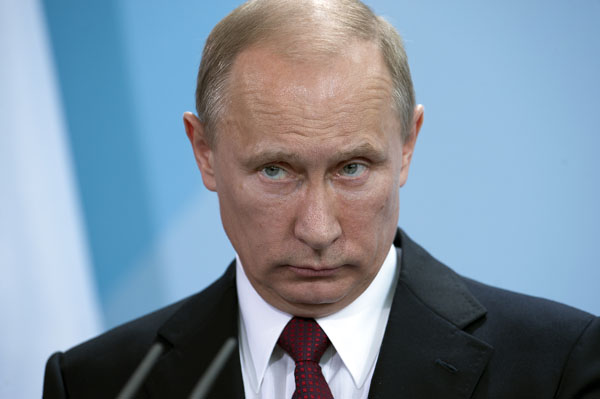Russian president Vladimir Putin hit the headlines around the world after an interview with the Russian First Channel and the Associated Press on 4 September. His statements on Syria were given much attention, with early reports saying it meant Russia might support military intervention. In fact, Putin did not state that clearly, but pegged it to “conclusive evidence of the use of chemical weapons” by the Assad regime.
Close consideration of Putin’s recent public statements shows the same approach applied to other topics, including several human rights issues that Russia has been criticised about lately. Despite a noticeable change of the tone he prefers to give vague comments rather than well-articulated attitudes.
For instance, his reply to criticism on the law that bans “homosexual propaganda” was aimed to show Putin is tolerant to representatives of LGBT community, all the while referring to them as “such people”.
“I work with such people; sometimes I award them with medals and orders, we have absolutely normal relations, and I see nothing special about it,” said Putin in the interview without going into details on who “such people” are and what kind of “work” with Russia’s president they are involved in.
The same seemingly pleasant, but otherwise void impression was given by Putin during his meeting with a presidential Council on Development of Civil Society and Human Rights. During the meeting on 4 September Vladimir Putin put aside his macho-style image of a firm ruler.
“He suddenly appeared to be a different person, a constructive and attentive politician who is open to ideas and ready to consider them,” Andrey Yurov, a Russian human rights defender who is a member of the Council told Index. “He was listening carefully to suggestions about reforming of penal and judiciary systems, adjustments to internet regulations and public control of the state bodies, and reacted with comments like ‘Oh, this is interesting’, ‘We really need to look into that’ or ‘We might need to create a working group on this’. He did not say ‘yes, we will definitely do it’ to any of our suggestions, but at least he did not say a firm ‘no, we won’t do it’ to anything.”
Vladimir Putin even admitted the notorious NGO “foreign agents” law might need to be re-assessed. The law, adopted a year ago, forced all non-governmental organisations that receive funds from abroad to register as “foreign agents” if they are involved in “political activities”. The problem with the law, as many experts and civil society groups have pointed out, is its extremely broad definition of what constitutes a political activity. During the meeting with human rights defenders President Putin said it might be re-defined and narrowed.
“It is difficult to say if it marks a reboot of an attitude of the state towards the civil society and whether any real steps are to follow. But it was a constructive conversation between a rational politician and civil society. Perhaps it has to do with the G20 summit in St. Petersburg; Putin needs to show he is an open leader and he is in touch with civil society of his country,” recons Andrey Yurov.
Yury Dzibladze, the president of the Centre for the Development of Democracy and Human Rights, does not believe Putin’s statement signal any change.
“There are no signs of real improvement of the situation with human rights and civic freedoms inside the country. Criminal cases against political opponents are on-going; inspections of NGOs in line with the ‘foreign agents’ law continue. The rhetoric might change, but it only means the authorities want to improve their image abroad, not alter the situation in Russia itself. It might be connected with the G20 summit and up-coming winter Olympics they do not want foreign politicians to boycott,” said Yuri Dzhibladze.





